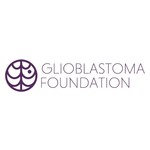The Glioblastoma Foundation Launches Several Initiatives in Support of its National Commitment to Ensuring Accessible, Individualized Patient Care and Treatment
DURHAM, N.C.–(BUSINESS WIRE)–Glioblastoma Awareness Day observed today, July 20, 2022, aims to increase public awareness of glioblastoma and honor those who have lost their lives to the devastating disease. In conjunction with the observance, the Glioblastoma Foundation is dedicated to educating the public about this aggressive brain tumor and funding research that will result in innovative therapies, improved treatments and longer patient life expectancies.
Glioblastoma is the most common and aggressive form of a primary malignant brain tumor in adults, according to the National Institutes of Health (NIH). While glioblastoma accounts for nearly 50 percent of all primary malignant brain tumor diagnoses, the standard of care has not been updated in decades. While there is no cure for glioblastoma, traditional treatment standards include surgery, radiation and chemotherapy. Even with these treatments, the average life expectancy is 12-15 months and just four months for those who elect not to receive treatment.
This year, in honor of Glioblastoma Awareness Day 2022, the Glioblastoma Foundation announced two new research awards; launched its annual online fundraiser; released an exclusive video interview with Dr. Eugene Semenov of MGH Harvard who lost his father to glioblastoma; and debuted an interactive landing page for people to learn more and spread awareness about the disease.
“As a national organization, we are committed to funding the best research, providing patient support and raising awareness of glioblastoma. Glioblastoma Awareness Day is a chance to share, learn more and get involved in the community,” said Gita Kwatra, PharmD and CEO of the Glioblastoma Foundation. “The research our mission supports includes early detection, focused ultrasound, clinical trials, repurposing existing drugs and the identifying of new treatments to extend life expectancy. We are leading the charge in research centered on targeted therapies designed to provide innovative treatment options and improve quality of life for patients.”
Research being funded by the Glioblastoma Foundation – through a new award announced today – involves the study of long-term glioblastoma patients and the characteristics that make them long-term survivors. The research is being conducted by Dr. Eugene Semenov, an expert in the fields of epidemiology and bio-informatics at Massachusetts General Hospital at Harvard Medical Center. Dr. Semenov has a personal connection to glioblastoma, having lost his own father to the cancer in 2013. As mentioned prior, Dr. Semenov speaks about his research and the loss of his father to glioblastoma in a video released today.
The Glioblastoma Foundation also today announced a second award to fund research led by Dr. Vinay Puduvalli at MD Anderson Cancer Center. Dr. Puduvalli’s research focuses on finding novel drug targets for glioblastoma and the new research being funded by the Glioblastoma Foundation involves the study of how glioblastoma cells grow, divide and proliferate. By targeting glioblastoma-specific cancer growth pathways, Dr. Puduvalli is working to develop a new drug for glioblastoma that can work for all patients.
To date, the Glioblastoma Foundation has identified over 20 drugs currently approved for other conditions that may provide hope to glioblastoma patients. To gain approval for drug repurposing, each drug will need to be tested in clinical trials. The foundation has launched a fundraising drive to provide grants to fund drug repurposing trials for glioblastoma.
The Glioblastoma Foundation has also initiated the reshoring of the active ingredients of lomustine, a chemotherapy drug used to treat the disease. There is currently no domestic source of lomustine and recently the sole drug manufacturer significantly increased its price, making clinical trials cost prohibitive. As per the Society for Neuro-Oncology, “the field of neuro-oncology is in the midst of a crisis with lomustine.”
“The Glioblastoma Foundation is actively working to resolve the lomustine crisis and make it more affordable and accessible to patients who need it most,” said Kwatra. “We have partnered with Continuity Pharma in collaboration with API Innovation Center (APIIC) to bring manufacturing to the U.S. so this drug can be more readily and affordably accessible. No one should ever have to give up their chance at life due to money.”
In June of 2019, the United States Senate unanimously voted to designate the third Wednesday in July, as Glioblastoma Awareness Day, after Senator John McCain passed away from glioblastoma. Beau Biden, the son of President Joe Biden, died of glioblastoma in 2015 at the age of 42. Before losing his life to this deadly cancer, Neil Peart, drummer for the band Rush, asked fans, friends and family to donate to the Glioblastoma Foundation, which allowed the organization to establish the Neil Peart Neurosurgery Research Award to encourage neurosurgeons to improve upon and innovate surgical techniques and therapeutic methods for glioblastoma.
To learn more about glioblastoma or to find out how you can get involved with the Glioblastoma Foundation, visit https://glioblastomafoundation.org/.
About Glioblastoma Foundation
Glioblastoma Foundation, Inc. is a national 501(c)(3) nonprofit charitable foundation headquartered in Durham, North Carolina. The mission is to transform the standard of care for glioblastoma by supporting the development of new drugs and other effective therapies. The Glioblastoma Foundation uses funds to support research that will transform glioblastoma into a manageable chronic condition. Contact info@glioblastomafoundation.org for more information or visit the website.
Contacts
French | West | Vaughan
Caitlin Brauner
CBrauner@fwv-us.com
(919) 277-1182






